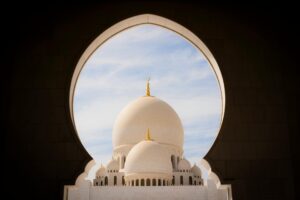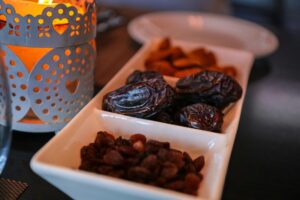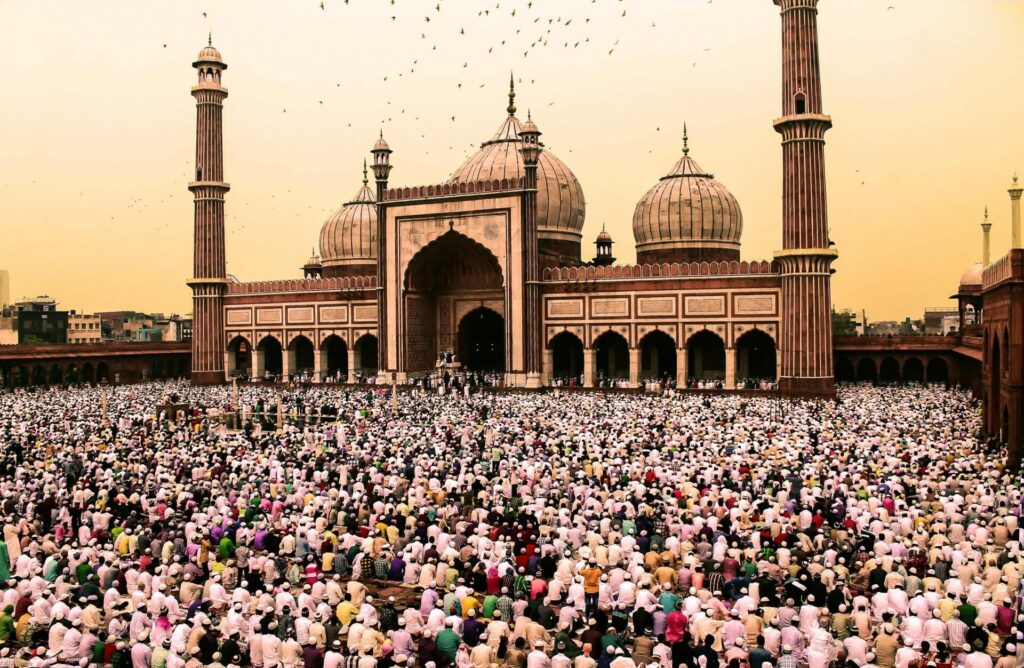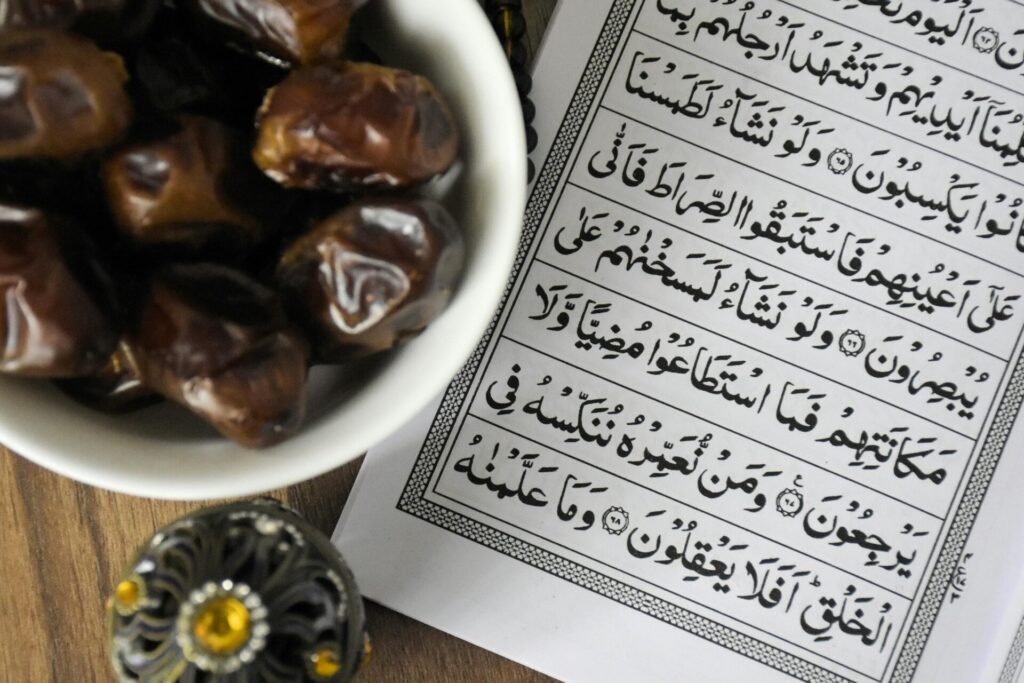Ramadan 2024: spirituality, community and reflection
Ramadan, the holy month of Islam, is just around the corner. Around 1.9 billion Muslims worldwide are preparing for the “month of good deeds”. This year, the month of fasting will begin on March 11 and end on April 10. During this time, the faithful will concentrate on their spirituality in addition to fasting and praying.
Fasting is one of the five pillars of their religion – alongside the pilgrimage to Mecca, daily prayer times, the profession of faith and giving. The elderly and sick, children, pregnant women, travelers and soldiers at war are exempt from fasting.

Meaning of Ramadan
Ramadan is much more than just a time of fasting. It is a holy month that has a variety of meanings and spiritual dimensions for Muslims around the world. In this blog we will learn about some key aspects of the meaning of Ramadan:
1. spiritual purification and self-discipline: Ramadan offers believers the opportunity for spiritual purification and to strengthen self-discipline by abstaining from food, drink and worldly pleasures between sunrise and sunset. Muslims also practise self-restraint and thus develop a deeper understanding of the importance of renunciation and modesty.
2. devotion and spirituality: During Ramadan, Muslims intensify their prayers, read the Koran more often and actively seek spiritual closeness to God. These 30 days serve to deepen your personal relationship with God and to reflect on your own spiritual growth.
3. community and solidarity: Ramadan strengthens cohesion within the Muslim community. Through joint fasting, prayer and charity, Muslims experience a feeling of solidarity and togetherness. The community celebrations, especially the daily “Iftar meals”, provide opportunities for social interaction and support the development of closer relationships within the community.
4. mercy and charity: Ramadan reminds believers to consider the needs of others and to care for those who are less privileged. Charitable actions such as donations to the needy and support for aid projects are particularly pronounced during Ramadan and serve to practice the principles of mercy and compassion.
5. self-reflection and personal development: Ramadan offers an opportunity for self-reflection and to review one’s own lifestyle, values and goals. Muslims use the month to reflect on their actions and decisions, recognize mistakes and improve themselves. It is a time of personal development and growth on a spiritual, emotional and moral level.
The holy month of Ramadan is therefore a time of devotion, self-reflection, community and spiritual experience for Muslims. Believers thereby deepen their connection to God, strengthen their relationships with other believers and embark on the path to spiritual perfection.

Ritual of fasting
Plates, cups and glasses remain empty from dawn to dusk.
The radical renunciation also affects luxury and pleasure. Finally, talking is also affected, which is kept to a minimum. In short, it is a time of self-restraint, reflection and renunciation of worldly needs. The faithful begin the day with a meal before sunrise, the so-called “Suhoor”, and end the daily fast after sunset with the “Iftar”. In addition to total renunciation, they also strive for spiritual purification through prayer, reading the Koran and good deeds.

Community and solidarity
Ramadan is also a time of community and cohesion. Muslims come together to pray, fast and celebrate. The spirit of solidarity and generosity is reinforced by charity campaigns, where Muslims are increasingly donating and caring for those in need. There are also special evening prayers during Ramadan, known as “Tarawih”, where believers pray together in the mosques.

Worldwide celebrations
Almost two billion Muslims around the world celebrate Ramadan. Customs and traditions vary depending on the region. However, the spirit of dedication and cohesion can be felt everywhere. From traditional feasts to public prayer and spiritual gatherings, there are numerous ways to celebrate Ramadan and connect with the Muslim community.

Life in Dubai during Ramadan
Dubai, a cosmopolitan metropolis, celebrates Ramadan with special splendor and magnificence. Public activity slows down during the day, but the city wakes up again after sunset. The traditional “Iftar meals” are a highlight of social life, where the community comes together to eat and pray. The city is festively decorated. There are numerous events and activities that celebrate Ramadan. Some of the most popular traditions in Dubai during Ramadan are special markets with traditional handicrafts, live music and cultural performances.
During Ramadan in Dubai, there are certain rules and labels to follow.
1. food and drink for non-Muslims: Non-Muslims in Dubai are not obliged to observe the fasting ritual. Restaurants and cafés are usually open during the day and offer food and drinks for non-Muslims.
2. restaurant operation: Many restaurants in Dubai remain open during the day during Ramadan. These restaurants often offer special menus and offers. However, especially in residential areas or neighborhoods with a predominantly Muslim population, some restaurants are closed during the day.
3. eating outside: Eating outside during the day is generally not customary because it is disrespectful to those fasting. It is even recommended to eat and drink discreetly during the day and to avoid public places in order to respect the feelings of those who are fasting. In the evening, after sunset, when the fast is broken (iftar), people can eat outside and celebrate together.
Non-Muslims should respect cultural customs and traditions during Ramadan and behave appropriately. Through this consideration, non-Muslims achieve respectful interaction with the religious community during this holy time. Dubai is also tolerant and considerate in this respect.
